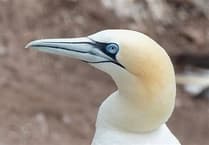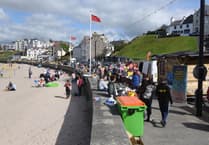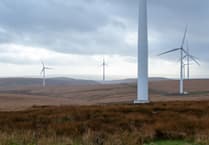The island is in ‘grave danger’ of falling short of retaining its biosphere status, a select committee has concluded.
Chaired by Marlene Maska, the Select Committee on Built Heritage’s final report will go to Tywald next week.
The committee was set up in 2022 to assess options for incentives and penalties to address the challenges facing owners, local and national government and other stakeholders and to assess what policies, schemes and measures exist elsewhere and how these could be adopted by government.
Having concluded its work, the committee has reached 19 conclusions and made the same number of recommendations.
These range from better cooperation between government departments, conducting an audit of the built environment and developing the Green Living Grant Scheme.
However, the conclusions reached by the committee includes saying that the island’s built heritage plays a significant role in our Unesco Biosphere status and failure to ensure stewardship of this, puts that status at risk. The island is, of course, the only entire nation biosphere in the world. The committee said: ‘The island has the obligation, under the UNESCO Biosphere pledge and the Man and Biosphere Programme, to work towards sustainability goals, such as those outlined in the Agenda 2030, and abide by the conditions set out in the Statutory Framework for the functioning of Biosphere Reserves.
‘Such goals and conditions are based on themes of development, logistic support and importantly for our investigation, the”‘conservation of our natural and built environment, our culture and heritage, our communities and our special sense of place”.’
It added: ‘Our UNESCO Biosphere status is due to be reviewed for re-accreditation in 2026. A key element that has to be achieved in order to be classified as a Biosphere reserve is the conservation of the natural and built environment, culture and heritage, communities and ‘special sense of place’.
‘Sadly, during our time as a UNESCO Biosphere, we have continued to lose significant amounts of our built heritage, and we have failed to provide a protective balance in accordance with our official national and international responsibilities and pledges. If we are unable to evidence our responsible stewardship of our built heritage during our current term, we risk not gaining reaccreditation.’
This also includes how biodiversity and the built environment coexist together. The committee noted old strong structures and abandoned farm buildings can provide and play a role in supporting biodiversity.
The committee has therefore recommended that Tynwald recognise the value of the island’s built heritage and calls on the Council of Ministers to ensure that the the government’s ‘policies and strategies reflect that value’.
You can read the full report, which will go before Tynwald next week, on the Tynwald website.
As Ms Maska is no longer an MLC, the committee intends to ask for permission for her to speak from the bar of Tynwald during the debate.




